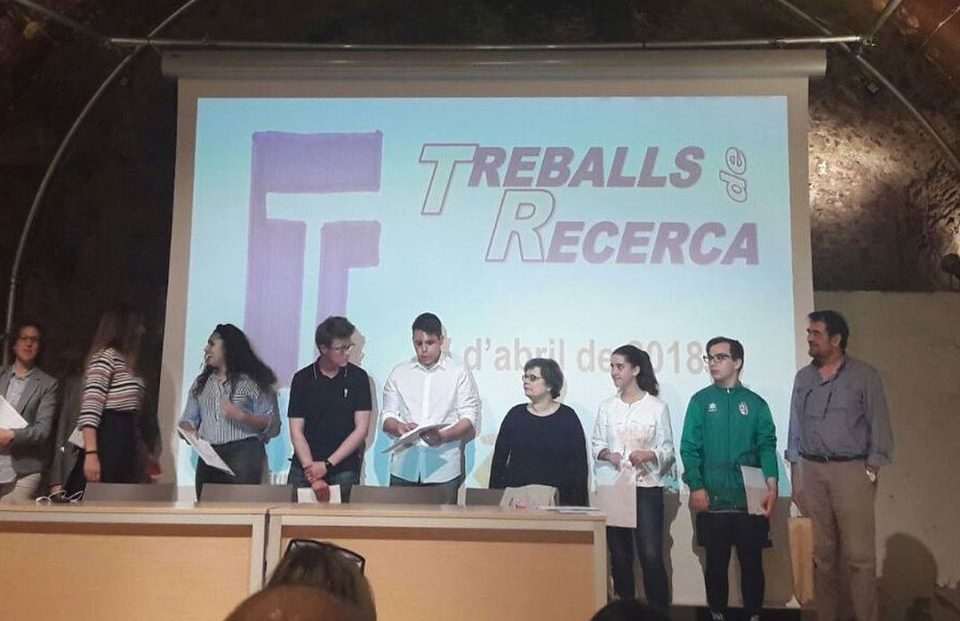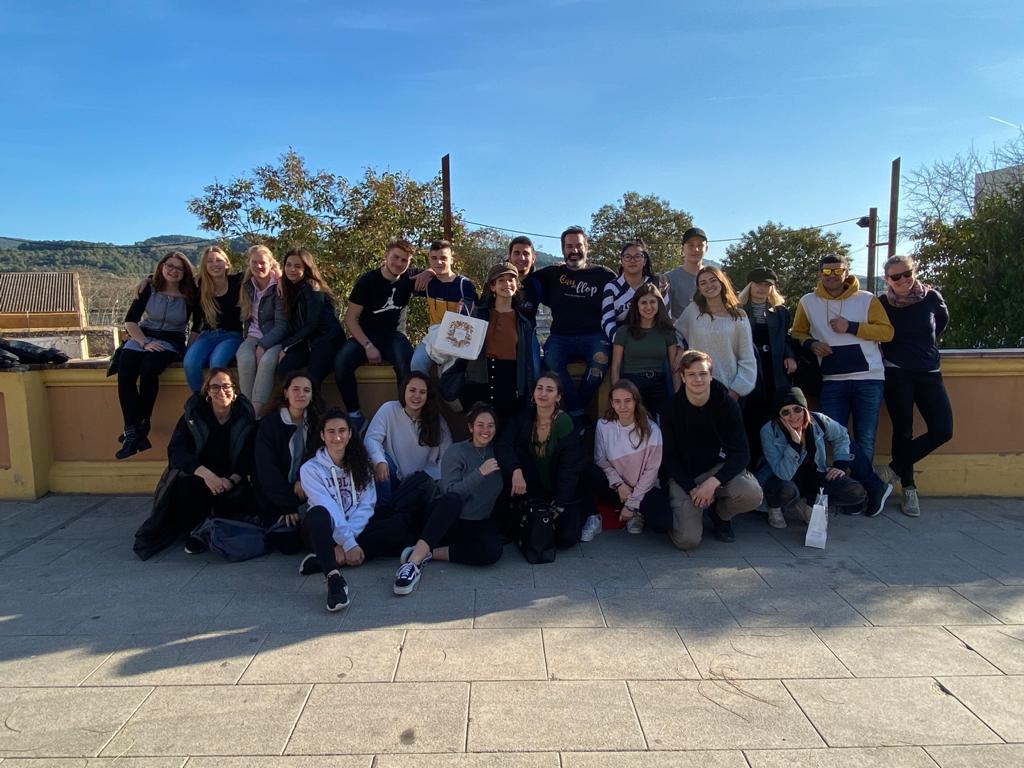Baccalaureate
Post-compulsory studies
Basic information
The baccalaureate is distributed over two academic years. It is developed in various modalities, so that it can offer specialized preparation to students.
The modalities that the center offers are the following:
- Humanities and social sciences
- Sciences and technology
What does it give access to later?
- Higher Level Training Cycles
- University studies (Provided that the corresponding entrance exams are passed)
- Higher Level Training Cycles in plastic arts and design (Passing their entrance exam)
- Higher Level Training Cycles in sports education (With the sports technician qualification, plus passing their entrance exam for certain specializations)
- Higher non-regulated studies
Baccalaureate at Bernat el Ferrer Institute: you are the protagonist!
The baccalaureate at Bernat el Ferrer Institute aims to be an educational stage that places students at the center of their own learning. Once students have finished ESO (Compulsory Secondary Education), they can choose between different baccalaureate modalities that can open doors for them to both higher-level training cycles and university degrees. Specifically, at our center, we offer the scientific, technological, social, and humanistic modalities.
Although based on the official curriculum all baccalaureates have a similar structure in terms of subjects, we want to highlight the following distinctive features of our baccalaureate, with which we want to bring this stage to life and ensure that the benefit for our students, both on an academic and human level, is optimal.
Research
Taking advantage of the mandatory Research Project (Treball de Recerca), which begins during the 2nd term of the 1st year of baccalaureate and is submitted during the 1st term of the 2nd year, we work on tools so that our students develop research strategies: collaboration with the El Molí library, contact with Catalan universities (Argó Program for advising on Research Projects from the UAB, ARGÓ summer stays), and methodological advising with the UB. A psychologist advises our students on how to speak in public for the oral presentation of the TR [Research Project] in a workshop titled “how to present your research project and not die trying”. Each student has a tutor teacher who accompanies them throughout the entire process and guides them in their research.

Guidance
We accompany students in choosing their academic and professional future. Taking advantage of the good relationship we maintain with alumni, they come to give talks to the students to explain their academic/professional experience once they leave the center. In the same way, the center’s own students who are taking a higher-level cycle share their experience with them. We also participate in the UAB open days and in guidance sessions at the UB, UPF, and UPC. From the tutorial sessions, students are also guided individually, giving them tools and strategies to orient themselves, such as the official portals or the unportal.cat website, and they are physically accompanied to visit the Saló de l’Ensenyament (Education Fair).

Multiculturalism and European context
In a global world, where our students will have the option to move at a European level during their studies and many of them also on a professional level, multiculturalism and the English language are essential. Thus, we promote multicultural learning and the possibility of contacting and communicating with people from other countries: Exchange with European institutes in the 1st year of baccalaureate (this year with an institute from Rosenheim (Germany)) and the use of the English language in non-linguistic subjects (CLIL learning in Science for the Contemporary World).

Peer learning and educational leadership
Regarding the work on the social aspect, we carry out the Guide Project where 2nd year Baccalaureate students accompany and guide 1st year students in the new stage. Each 2nd year student, after receiving mini-training in “coaching”, tutors a 1st year student from their same modality and accompanies them throughout the year with formal meetings and also with occasional contacts. In this way, we strengthen the bond between students of the same stage as well as add another reference person to accompany the students besides their tutor, coordinators, and head of baccalaureate studies. We train the delegates so that they exercise positive leadership and are a bridge between the students and the teaching staff.

Open Institute of Catalonia (IOC)
In order to make the students’ curriculum as flexible as possible, and so that they can opt to take subjects that are suited to their subsequent studies or that carry more weight for them in the Selectivitat (university entrance exams), we offer the possibility of taking some subjects remotely in collaboration with the IOC. Thus, since the beginning of this collaboration, we have had students taking subjects as diverse as: Earth and Environmental Sciences, Audiovisual Culture, psychology and sociology, Design, universal literature, applied anatomy, musical analysis, or Italian. We preferably offer this option in the second year, when the students have already adapted to the baccalaureate dynamic and have a greater degree of autonomy in order to take a subject without an in-person teacher.
Trips and final farewell
In the 1st year of baccalaureate, during the cultural/trips week, we organize a ski trip. In order to say farewell to the stage, we organize an end-of-year trip in the 2nd year of baccalaureate to a European city. We always look for a destination that can meet three objectives: attractive to students, with cultural interest, and that fits a budget that allows the majority of students to attend. We make the official closure with a final farewell event prepared by the students and teachers themselves, with the participation of families.

Educational excellence
All the work previously described, plus the academic work of our entire teaching team using innovative information andGIA communication management strategies, leads us to a high graduation rate for our 2nd-year baccalaureate students, a very satisfactory success rate in the PAU (university entrance exams), and the obtaining of honorable mentions for students in every graduating class (a mention awarded to students who obtain a grade equal to or higher than 9 in the general phase of the PAU).

Education does not change the world. It changes the people who will change the world.
Paulo Freire, Brazilian educator
